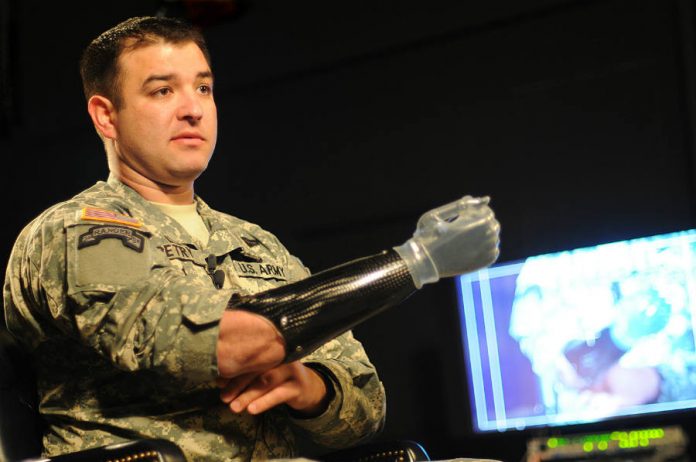
The U.S. Department of Veteran Affairs leads a small but significant division in Richmond, Virginia. It is the Polytrauma Rehabilitation Center (PCR) at the McGuire VA Hospital which gears up injured veterans with the assistive technology they need.
Former American soldiers and officers who have served the country and have been injured or disabled for any reason can apply to get help from the Federal initiative. Some of these devices dramatically increase their quality of life.
The VA’s AT program helps veterans across the U.S.
The PCR in Richmond, Virginia is just one of several associated centers that work to help veterans in need. There are other locations in Minneapolis, Indiana; Tampa, Florida; and San Antonio, Texas.
All these hospitals are subscribed to the Veteran Affairs Department’s Assistive Technology program. The initiative takes requests from former soldiers that need assistance due to a physical or mental disability.
Caregivers and veterans themselves reach out to their closest center and a medical professional takes a look at their case. People can either go to a face-to-face session or consult with a doctor via video platforms like FaceTime and Skype.
These doctors certify the patient needs assistance and greenlights the AT team to take over the case. Then, a group of specialists matches vets with the devices they may need to improve their livelihood.
What kind of tech do vets receive?
Smart home setups and devices can drastically increase the quality of life of soldiers with simple yet far-reaching implementations. Adding IoT developments like Google Home or Amazon Echo hubs is enough to have a lasting impact on veteran lives.
The AT program covers a wide range of needs. Some retired soldiers have received Nest thermostats, and Control4 smart home panels, among other things. For seriously injured or wheelchair-bound vets, the Department also has solutions in stock.
The Veteran Affairs Department acts under the resolutions of the Technology-Related Assistance for Individuals with Disabilities Act of 1998. That piece of legislation does not discriminate the origin of the accident that caused the impairment.
Doctors and engineers at these professional centers dispatch all the medical solutions needed by patients, such as wheelchairs and walkers. Some of them have developed custom 3D-printed modifications for these veterans.
Source: CNET










